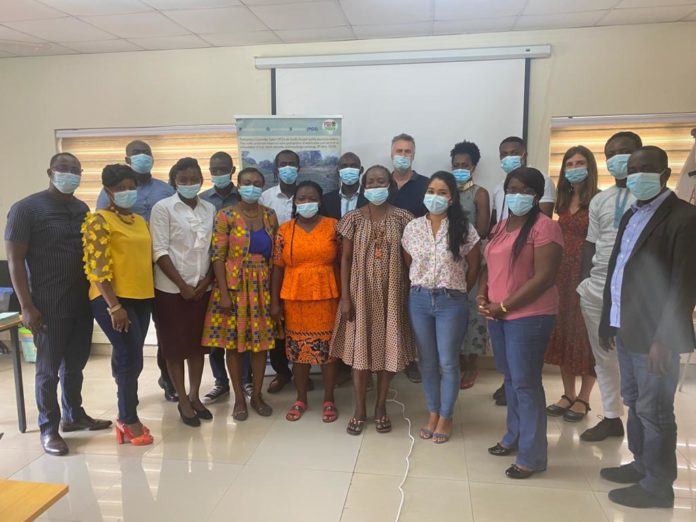Food consumption is one of the critical issues of late, especially fruits and vegetables due to the excessive usage of agrochemicals for production. This has generated a lot of diseases like kidney and liver diseases to consumers. The safe way of consuming healthy and nutritious food is to produce them organically, especially vegetables, therefore, to ensure certified organic produce by producers to consumers, the products should bear Participatory Guarantee System (PGS) mark.
PGS, a local certification system for the domestic markets that are directly managed and implemented by organic producers and consumers has organized a workshop to prepare its members for the system continuity and sustainability to assist farmers to produce organic products in Ghana.
The organic products in Ghana are produced according to the Ecological Organic Standard of Ghana (EOSG) bears the PGS mark that is only guaranteed to the organic producers once they are verified and approved through the PGS.
Olawumi Benedict, the Coordinator of PGS Ghana said farm product could be called organic when it passes the systems of inspection that conform to the moral and ethical standards across the world.
She mentioned that all farm produce that has PGS certification are organic, “PGS helps to assure the consumers that whatever is purchased that has PGS certification logo on it has gone through the inspection process and we are assuring the consumers that what they are consuming is safe, healthy, environmentally friendly and organic”.
PGS bridges the gap by assuring the consumers and the processors of the rightful activities of the farmers in the production process. This she said, gives consumers confidence and the trust of every product that has the PGS logo as safe and organic.
She called on all farmers who are interested in organic farming to register with PGS for capacity building, market accessibility, and other benefits.
“If PGS members in Ghana succeed and transform this project into Ghanaian system, and continue to provide good services to the farmers to convert from conventional agriculture into more natural agriculture that would not harm but produce healthier products for the population, it would be a great benefit for both the farmers’ and the consumers’ health”, Bernard Conilh De Beyssac, a consultant for the project said.
According to him, it is his mandate as a consultant to building the capacity of the PGS members to sustain the certification process and continue providing services to smallholder farmers to certify their organic products.
He called on the PGS members and the supporting partners to help sustain the systems since organic production is the future of Ghana’s agriculture.
As a projects implementation organization, IFOAM, a membership-based non-governmental that works to foster the activities of organic producers across the globe assisted the implementation of PGS projects in Ghana.
IFOAM is a capacity-building organization that facilitates the transition of farmers to organic agriculture, raises awareness of the need for sustainable production and consumption, and advocates for a policy environment conducive to agro-ecological farming practices and sustainable development.
“We will decide on how to support the activities of PGS in Ghana, several activities from us would be focused on logistics, monitoring, and evaluation since PGS is a newborn baby”, Sara Anselmi, a representative from IFOAM assured during the workshop.
Speaking to Agric Today, Sara explained that IFOAM would take into account all the supporting points that are raised to see the continuity of the project in Ghana. “We will take all these points into account and try to adjust our actions and our inputs towards this project’s sustainability”, she added.
In view of the PGS members, the farmers who have been enrolled in the scheme have appreciated PGS systems of education, training, and good agriculture practices by the members concerning how to grow organic products for the market. This was underlined by the PGS Greater Accra and Volta rep, Dr. Florence Vanderpuye.
Dr. Vanderpuye mentioned that the strategic plan that has been developed by the team would help to boost farmer’s confidence and know the direction of the systems in organic production.
The PGS systems according to her, are market linkages, education and training skills development, capacity building in other areas like business development, and linking the governmental institution with the system.
She called on farmers who want to grow food products organically to register and be part of the system to promote healthy organic food products for Ghanaians.








